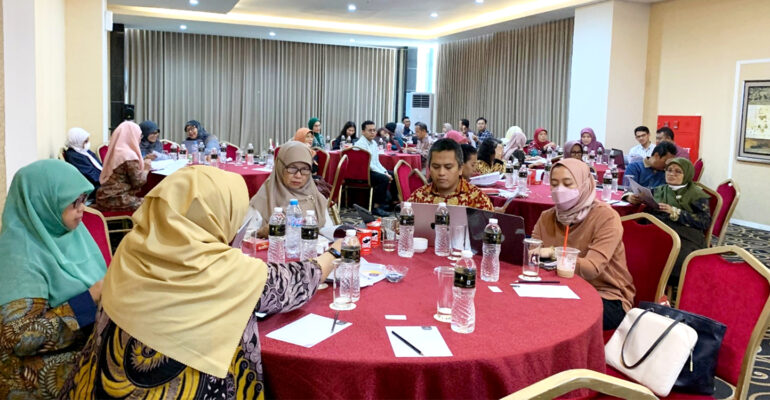Ditmawa IPB University Held FGD Using Talent Mapping Data for New IPB Students Batch 61

The Directorate of Student Affairs (Ditmawa) of IPB University held a Focus Group Discussion (FGD) event for the Use of Talent Mapping Data for IPB New Students Batch 61. The event was held at the Ballroom of the Grand Savero Hotel, Bogor City, last weekend. This activity aims to discuss the results of mapping student talents obtained during the orientation process.
This FGD presents PT Daya Dimensi Indonesia (Daya Lima) as the implementer of the Talent Mapping program; the coordinating unit of the Vice Rector for Education and Student Affairs (WRPK); the Vice Dean for Academic, Student Affairs, and Alumni; as well as the lecturers who drive Talent Mapping.
The Director of Student Affairs of IPB University, Dr Ujang Suwarna, in his speech emphasized the importance of Talent Mapping in helping institutions to identify the potential and interests of students early on.
“We hope that the data generated from this Talent Mapping can be a valuable guide, not only for academic development but also for non-academic development,” he said.
This, he continued, is in line with the efforts of IPB University in creating graduates who are not only intellectually superior, but also have abilities and skills that match their respective interests and talents.
“We hope, through this FGD, the Talent Mapping program can help students reach their maximum potential during their studies at IPB University,” said Dr Ujang. He also appreciated the cooperation established with PT Daya Lima and the role of the driving lecturers in facilitating the implementation of this program.
In the next session, Lita Laurina, a representative from PT Daya Lima, explained the results of the Talent Mapping of New Students IPB 61 which was carried out during the New Student Campus Introduction Period (MPKMB). Based on the data that has been collected, it is conveyed that a number of students have great potential in various fields, ranging from leadership, creativity, to analytical skills.
“This data is very important to guide more targeted and personalized learning, so we hope that lecturers and related parties can take advantage of this result to design a more effective mentoring program,” explained Lita.
This FGD activity ended with an interactive discussion between the moving lecturers, Daya Lima representatives, and the participants present. Through this discussion, it is hoped that the results of Talent Mapping can be used optimally to support the learning process at IPB University, so that every student can develop according to their best potential. (*/Rz) (IAAS/IAN)



